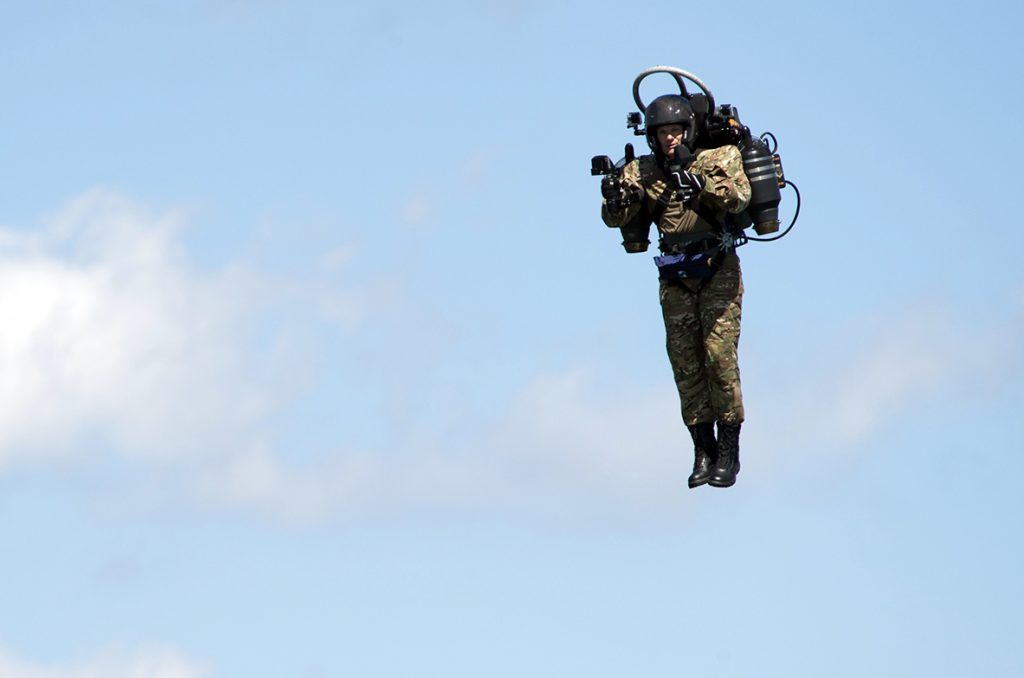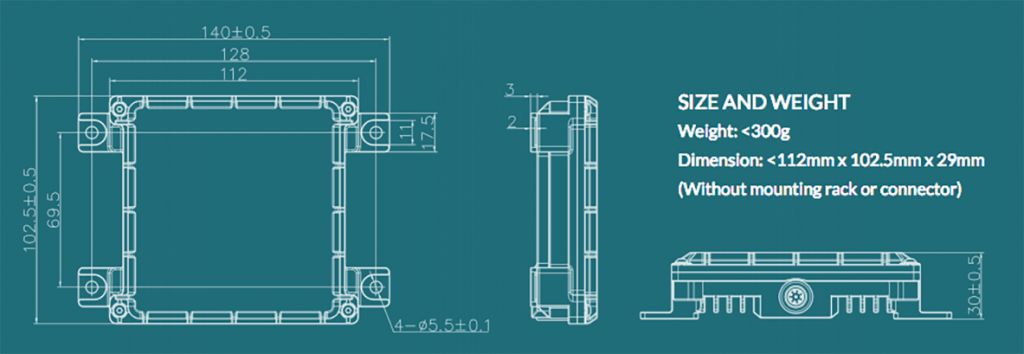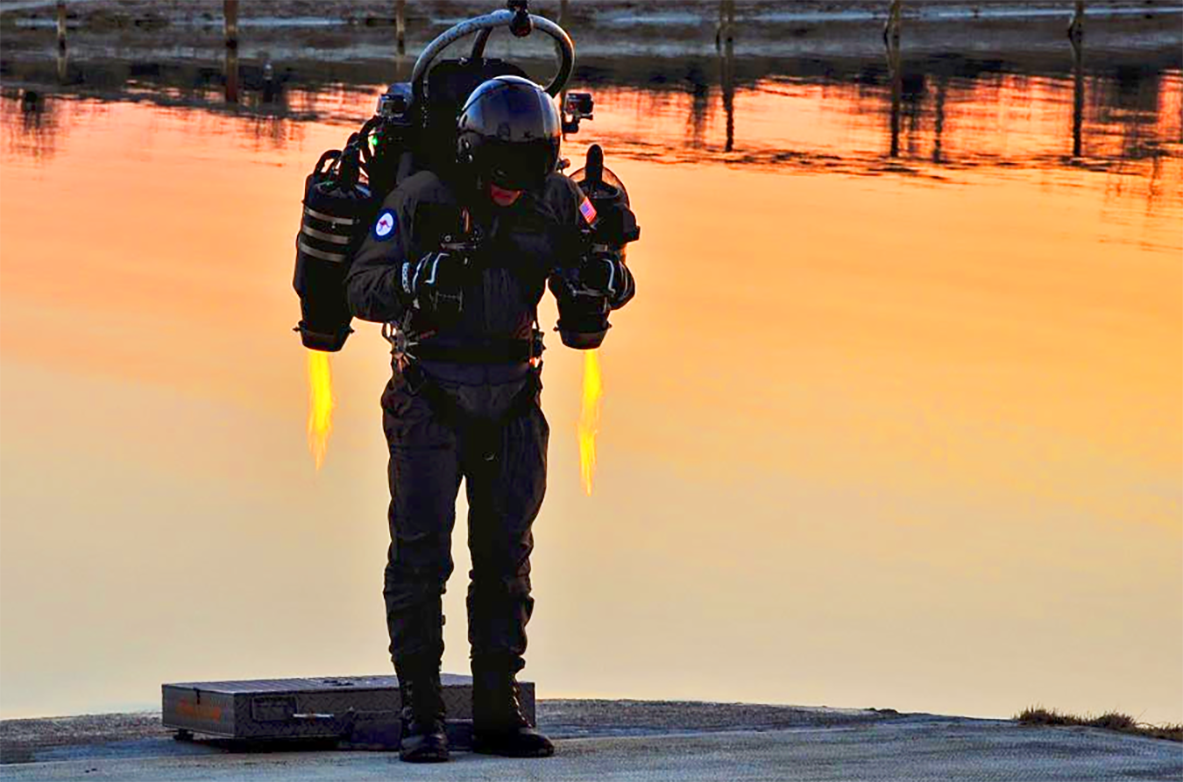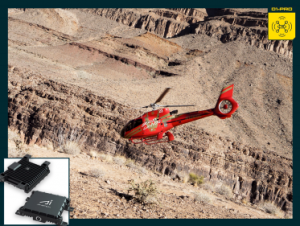When the founder of JetPack Aviation blasts to the sky later this month in Red Bull’s Air Race World Championship, it will be a testament to the innovation and quality at Ainstein, a Kansas radar tech firm, said Bryan C. Boots.
“Although our products are widely deployed today in unmanned aviation (drone) applications, this will be the first time that we know of that one of our products will be used in a manned flight,” said Boots, business development manager for the Lawrence-based company. “It represents a big leap for us as a company in that our products have been recognized as being ultra-safe and reliable, and the confidence that JetPack Aviation has put in them (that’s actually the founder of JetPack Aviation [David Mayman] who is flying the jetpack, demonstrating his own personal commitment to the safety of the product).”
JetPack Aviation’s wearable flight apparatus is intended for ultra-fast military transportation, Mayman told DailyMail.com in January at the Consumer Electronics Show in Las Vegas, where the entrepreneur and investment director displayed a prototype of the technology.
“I can take off in here if I wanted to, and I can land vertically, which is different to a lot of the wind suit concepts you hear about, where you have to jump out of an airplane,” he said. “We can do like 15, 20, 25 miles really fast – like 150 miles an hour.”
The working jetpack is expected to debut using Ainstein’s radar altimeter technology during the June 23-24 Red Bull competition, he said. The firm’s sensor and control products are widely used by other tech companies working to create the next emerging smart technology, said Sheen Xiao, director of operations for Ainstein.

David Mayman, founder and CEO, Jetpack Aviation
It’s largely based on the company’s “sense-and-avoid” technology first applied to the commercial drone market. Sense-and-avoid refers to tech that enables airborne collision and obstacle avoidance.
“We’re faster in adopting the latest radar technology. Our radar on the market has a smaller platform than what [others] offer,” Xiao said, noting the 100-gram weight of the radar altimeter.
The Ainstein technology is built for a tough environment. It’s dust proof, water proof — that includes ocean water, rain and fog, as well as chemical sprays — and features a single board electronics design that “leaves no room for failure,” according to the company. It’s compact size means the device fits in the palm of a hand and is light enough for camera drones.

Powered by Aerotenna, a sister company founded by Zongbo Wang, a former research professor at the University of Kansas, the three year-old Ainstein has experienced quick growth,Xiao said.
It’s a credit to reliable partners, guidance from advisors, as well as a hustling team, she said.
“We are a young company and the team is very effective. In my observation, every single one of us is doing four times the work of larger size companies,” she said. “Even though we’re small, like about 40 employees, we are able to penetrate four verticals and very effectively for our customers and contacts.”
Those market verticals — agriculture, automotive, industrial measurement and sports — each have grown at their own pace, with the most significant customer base in the ag realm.
The fastest-developing, however, falls within the automotive industry — both in the United States and China — where Xiao and Boots said have great potential for self-driving and assisted driving using sensors that make roadways safer.
“We are able to offer something that is not on the market right now,” said Xiao. “Either it’s the latest radar technology or it is cutting at what others are not actually offering at all.”








































